Resin bonded bridge is a minimally invasive fixed dental prosthesis that is luted to tooth structures, primarily enamel, which relies on composite resin cements for retention.

Types
CANTILEVER
FIXED-FIXED
FIXED-MOVABLE
HYBRID
Cantilever
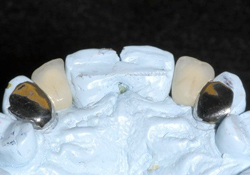
Involves the use of single retainer
Abutment tooth maybe either mesial or distal
Less expensive, but limited to replacing one
missing tooth
Fixed-fixed
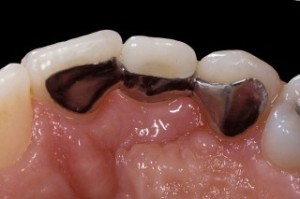
One or more retainers are placed on either
side of the pontic
Differential movement of abutments can
result in bond failure
This design of bridge is indicated where
excursive movements on pontics cannot be avoided
Fixed-movable
Design is in two parts, keyed together by a
non-rigid attachment

Connector which may be either ready or laboratory-made,
permits movement of the two parts relative to each other in vertical direction mainly
Provides stress breaking action
Should be used in short spans and where opposing
proximal walls of abutment cant be prepared parallel
Hybrid
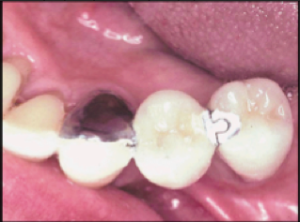
A combination of a conventional retainer at one end
and a resin-bonded retainer at the other end of the pontic
Indicated where one of the abutments is minimally restored,and a resin-bonded retainer is used at this site to conserve tooth tissue
The male part of the joint is often attached to the
resin-bonded retainer to simplify maintenance when de-bond occurs
History
ROCHETTE BRIDGE
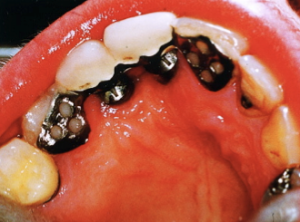
Wing like retainers with perforations through them to enhance resin retention
Macromechanical retention +
silane coupling agent to produce
adhesion to metal
MARYLAND BRIDGE
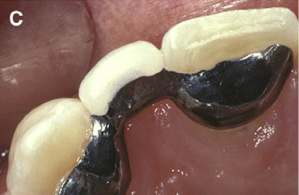
An electrolytic etching procedure for non-precious ceramic bonding alloys to provide a microporous surface that allows micromechanical interlock with the cement
Thinner wings and no perforations
VIRGINIA BRIDGE (Lost Salt Technique)
Salt crystals (150 to 250 μm) were incorporated into wax and removed in solution leaving cubic retentive pits
Produces roughness on the inner surface of the retainer
This was a time saving method and more retention is achieved compared to the technique of etching
CAST MESH FIXED BRIDGE
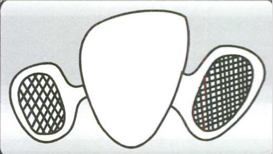
A net like nylon mesh is placed over lingual surface of abutment teeth on the cast
It is then covered by wax, with the undersurface of the retainer becoming mesh like when retainer is cast
Advantages of Resin bonded bridges
Minimal tooth preparation
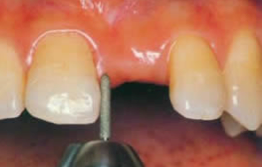
Beneficial incase of decay free teeth, large pulp chambers, slender lower incisors
Expediency
Little need to provide temporary crown
Reduced chairside time; overall cost is minimal
Convertibility
Less destructiveness
Possible to upgrade to a conventional
bridge without detriment to health of
abutment teeth
Supra gingival margins
Mandatory for RBB
Soft tissue is undisturbed, facilitates plaque removal
Acceptance by the patient
Technique involves minimum of “injections” and “drilling”
Rebonding Possible
Disadvantages of Resin bonded bridges
High failure rate
More frequent debond as compared to conventional
Plaque may trap underneath this de-bonded retainer, which can result in carious destruction if undetected
Aesthetics
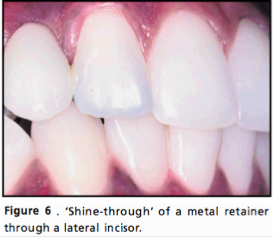
Problems can occur with incisal shine-through of metal if an opaque cement is not used
— Occlusal interferences
Mostly retained by lingually placed metal flanges
Not possible to reduce abutment teeth sufficiently
Frequent problem when upper arch is involved
Redistrubution of space between pontic and abutment teeth
Limited tooth replacement
Small spans tend to be more successful than large ones
No Alignment correction
Indications
Unrestored/minimally restored teeth
Sufficient good quality enamel
Sufficient inter-occlusal space for retainers
exists
Intermediate prosthesis prior to implants
Large pulp chamber/ young patients
Splinting periodontally compromised teeth
Maxillary incisor replacements
Single posterior tooth
replacements
Contraindications
Insufficient occlusal clearance
Deep vertical overbite
Thin and/or defective enamel
Short clinical crowns
Extensive loss of tooth structure
Parafunctional habits
Heavily restored teeth
Nickel sensitivity
Read also Dental Implant in Smart Village
Register here For more information & diplomas
Contacts: 9 abbas el-akkad street, nassr city, Cairo, Egypt
Tel: (+202) 24010655
Cell phone: (+2) 01143050023
Call phone: (+2) 01024212175
E-mail: info@spc-eg.com
ليست هناك تعليقات:
إرسال تعليق